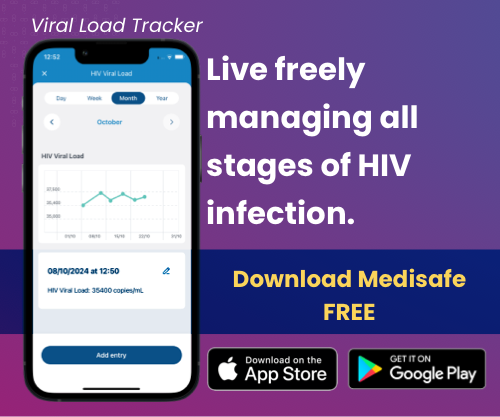If you’ve recently been diagnosed with HIV or are caring for someone who has, one of the many questions on your mind might be, “Why does HIV cause weight loss?” This can be a troubling symptom to notice, but understanding the reasons behind it can help you better manage the condition. Let’s break down the main causes of HIV-related weight loss and what can be done to address it.
HIV and the Body’s Metabolism
One of the reasons HIV leads to weight loss is due to the virus’s impact on the body’s metabolism. HIV attacks and weakens the immune system, specifically targeting CD4 cells, a type of white blood cell that plays a crucial role in fighting infections. As the immune system works overtime to combat the virus, the body’s energy needs increase. The metabolic changes in people with HIV can lead to what is often referred to as “hypermetabolism,” where the body burns calories at a faster rate than usual .
This increased energy use means that even if someone is eating their usual amount of food, they may not be able to maintain their weight. Over time, this can result in noticeable weight loss, especially if the person’s diet isn’t rich enough in nutrients to support their higher energy needs.
Malnutrition and Poor Absorption of Nutrients
Another major cause of HIV-related weight loss is malnutrition. HIV can interfere with the body’s ability to absorb nutrients from food properly, which is a condition known as malabsorption. When someone with HIV experiences malabsorption, their digestive system struggles to extract the necessary vitamins, minerals, and calories from their meals, even if they’re eating enough food. Over time, this can lead to a deficiency in essential nutrients, contributing to both weight loss and a weakened immune system .
Additionally, HIV may increase the risk of other infections in the digestive tract, such as bacterial infections, parasites, or even fungal infections. These infections can cause diarrhea, further impairing nutrient absorption and leading to even more rapid weight loss.
HIV-Associated Wasting Syndrome
For some people, weight loss may progress to a more serious condition known as HIV-associated wasting syndrome. This condition is defined by involuntary weight loss of more than 10% of a person’s body weight, often accompanied by chronic diarrhea or weakness. HIV wasting was much more common before modern antiretroviral therapies (ARTs) were introduced but can still occur today in people whose HIV is not well-managed .
Wasting syndrome is a significant concern because it can lead to a decline in physical strength, a greater risk of infections, and a decreased quality of life. It is crucial to speak to a healthcare provider as soon as you notice significant or unexplained weight loss in someone with HIV.
Side Effects of Medications
Some of the medications used to manage HIV can also contribute to weight loss. Antiretroviral therapy (ART) is the main treatment for HIV, but it can sometimes have side effects that include nausea, vomiting, and loss of appetite. These symptoms can make it difficult to eat properly, leading to unintentional weight loss. If this occurs, it’s essential to communicate with a healthcare provider, who may be able to adjust the treatment plan to minimize these side effects .
Mental Health and Weight Loss
Living with HIV can also impact a person’s mental health, leading to stress, anxiety, or depression. These conditions can affect appetite and overall nutrition, causing some individuals to eat less, which contributes to weight loss. Mental health is a crucial component of managing HIV, and seeking emotional support—whether through therapy, support groups, or talking to a trusted friend or family member—can help alleviate some of these issues.
Managing HIV-Related Weight Loss
Managing HIV-related weight loss involves a combination of medical treatment and lifestyle changes. First and foremost, getting on and adhering to a prescribed antiretroviral therapy (ART) is critical. ART helps control the virus and can slow or prevent further weight loss.
Nutritional support is also vital. Eating a balanced, nutrient-rich diet with plenty of calories to meet increased energy demands can help someone maintain or regain their weight. In some cases, a healthcare provider may recommend supplements or high-calorie foods to ensure that nutrient needs are met.
Exercise, particularly strength training, can help build muscle mass, which is often lost during HIV-related weight loss. Additionally, managing mental health through counseling or support groups can improve overall well-being and help stabilize weight.
Weight loss is a common and often concerning symptom of HIV. It can result from the virus itself, the body’s response to the virus, malnutrition, or even medication side effects. However, with proper treatment, including ART and good nutrition, it’s possible to manage and even reverse HIV-related weight loss. If you or someone you care for is experiencing significant weight loss, consult with a healthcare provider to explore the best options for care and support.
Sources and Links:
Leilani Fraley, RN, MSN. (2021). Why HIV Weight Loss Happens and What to Do About It. Healthline Media. https://www.healthline.com/health/hiv-aids/hiv-weight-loss
Keep Your Eye on the Scale. (2024). WebMD. https://www.webmd.com/hiv-aids/hiv-manage-weight-gain
HIV and Weight Loss. (2024). alberta.ca. https://myhealth.alberta.ca/Health/pages/conditions.aspx?hwid=zp4022
Beth Sissons. (2021).HIV and weight loss: Causes, treatments, is it ever safe? Medical News Today. https://www.medicalnewstoday.com/articles/hiv-weight-loss





